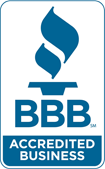
Bankruptcy Attorney Advising Debtors in Alabama
The primary reason that some debtors file for Chapter 13 bankruptcy is to restructure their debts and eventually obtain a discharge. This releases debtors from any further liability for the debts that are discharged. Certain debts are not dischargeable, such as debts incurred for alimony, child support, and some taxes. What if you face an insurmountable hardship in paying off a debt? In some cases, you may be able to receive a hardship discharge. At Grainger Hawley & Shinbaum, LLC, an Alabama bankruptcy lawyer may be able to help you request a hardship discharge if appropriate. An attorney familiar with Chapter 13 and its complex rules may be essential in helping you reorganize your finances.
Hardship Discharges in Chapter 13
A hardship discharge is granted to help a debtor who cannot complete a Chapter 13 debt repayment plan for reasons that are completely outside the debtor’s control. It will not be granted to debtors who cause their own difficulties, such as debtors who quit their jobs while making payments in a Chapter 13 plan. A debtor who receives a hardship discharge will be released from the duty to repay his or her debts.
You must show three things in order to receive a hardship discharge in a Chapter 13 bankruptcy. First, you need to prove that you could not complete your plan due to circumstances for which you are not accountable. You will need to show that your inability to complete the plan is permanent and serious. Second, you need to show that you have made enough payments that your unsecured creditors received at least what they would have gotten paid if you had instead filed for Chapter 7 bankruptcy. Third, you must prove that you could not make payments even if your plan were modified.
You will also need to show why your case should not simply be turned into a Chapter 7 case. Unlike Chapter 13 cases, in which you are able to keep your property with an appropriate repayment plan, Chapter 7 is also known as a liquidation bankruptcy. In this type of case, nonexempt assets are sold to pay off a certain amount of debt. If you cannot prove that your creditors have received what they would have received under Chapter 7, you may be a good candidate for having your case converted to Chapter 7.
Some examples of hardships for which you may be granted a hardship discharge include a serious illness, a serious injury or disability, unforeseen expenses, and involuntary job loss. The court has discretion over whether to grant a hardship discharge, based on the circumstances you present as your reason for the request.
In most cases, a repayment plan will be modified rather than scrapped. If there is any possibility that your hardship is temporary, your plan can be extended, or each payment can be reduced so that creditors can be repaid. However, if your plan is already 60 months old, this is the maximum, and the court will not extend your case beyond that to modify the plan.
If you do receive a hardship discharge, you may still be responsible for certain debts, including secured debts, priority debts, debts you did not identify in your petition, student loans, taxes, child support, alimony, condominium association fees, debts related to drunk driving incidents, and criminal restitution.
Consult an Experienced Alabama Lawyer for Your Bankruptcy Case
At Grainger Hawley & Shinbaum, LLC, we understand that there are certain circumstances in which a Chapter 13 debtor deserves a hardship discharge, and Alabama bankruptcy attorney Charles E. Grainger can represent you in your efforts to secure this relief. We maintain offices in Montgomery, Prattville, and Troy. Call us at (334) 260-0500 or contact us online to schedule a free consultation.


 Attorney Charles Grainger possesses decades of legal experience focused on debtor-creditor law, bankruptcy, and business law. His legal work is designed to help clients overcome debt and secure a stronger financial footing. He also provides legal services to entrepreneurs and business owners. Grainger Legal Services takes a comprehensive approach to debt relief and financial education for clients in south-central Alabama. [
Attorney Charles Grainger possesses decades of legal experience focused on debtor-creditor law, bankruptcy, and business law. His legal work is designed to help clients overcome debt and secure a stronger financial footing. He also provides legal services to entrepreneurs and business owners. Grainger Legal Services takes a comprehensive approach to debt relief and financial education for clients in south-central Alabama. [ 


